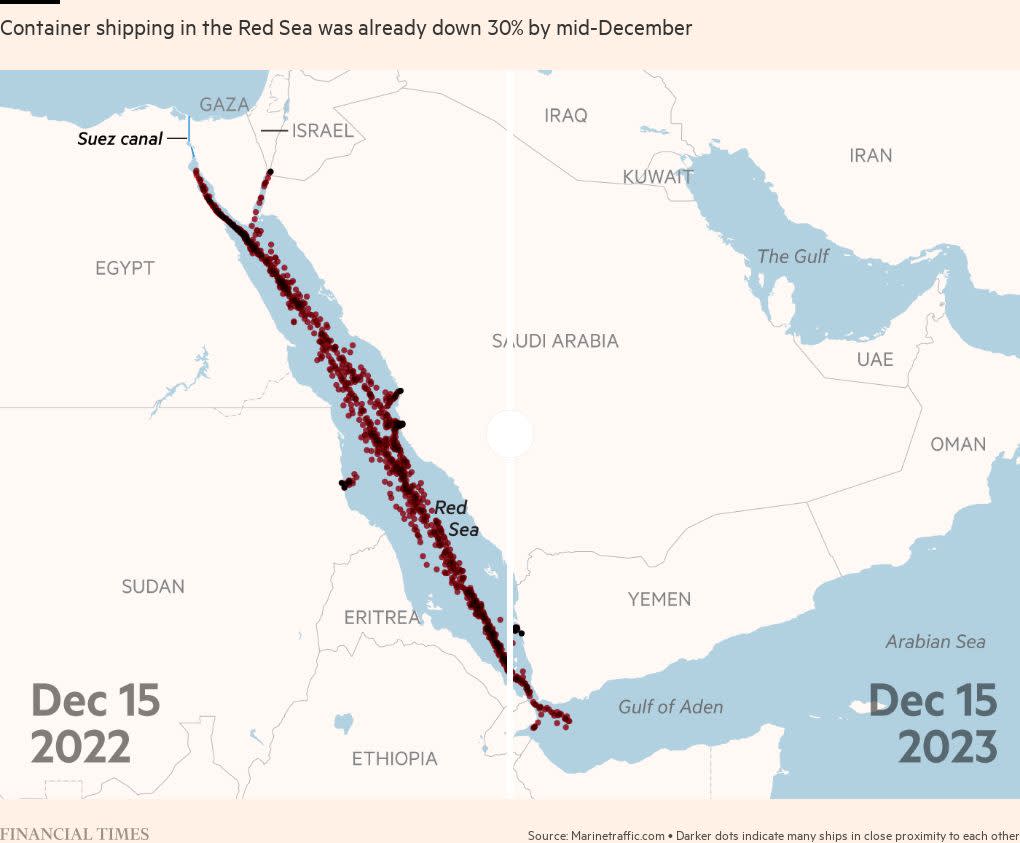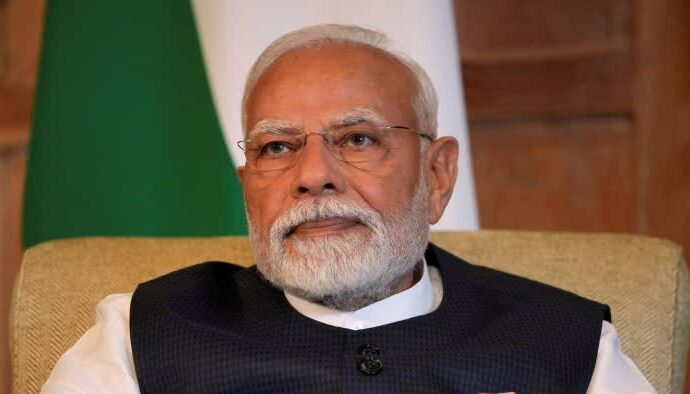Unlock the Editor’s Digest for free
Roula Khalaf, Editor of the FT, selects her favourite stories in this weekly newsletter.
The US and the UK have carried out military strikes against Iran-backed Houthi rebels, in response to the Yemen-based militants’ attacks on commercial ships in the Red Sea.
US President Joe Biden said he ordered the strikes in response to “unprecedented Houthi attacks” against international vessels in the Red Sea. Australia, Bahrain, Canada and the Netherlands also supported the operation.
“These targeted strikes are a clear message that the United States and our partners will not tolerate attacks on our personnel or allow hostile actors to imperil freedom of navigation in one of the world’s most critical commercial routes,” Biden said.
“I will not hesitate to direct further measures to protect our people and the free flow of international commerce as necessary.”
The strikes, which will raise fears of a wider escalation in the region, came after Houthi rebels stepped up their attacks on vessels off the shore of Yemen in the Red Sea, prompting warnings from the US and allies that they would respond militarily.
The Houthis, who control northern Yemen, have become one of the most active factions in Tehran’s so-called Axis of Resistance since the war between Israel and Hamas, which is also backed by Iran, erupted on October 7.
Although Biden has tried to prevent the Israel-Hamas war from metastasising into a regional conflict, the continuing attacks by Houthi militia — even after a multinational warning issued last week — has forced the White House to recalculate.
The Pentagon spent recent days drawing up options for targeted strikes on Houthi positions in Yemen, including missile launch sites and weapons depots, according to US officials.
Pentagon press secretary Major General Pat Ryder said on Thursday that, as of last week, five US and UK naval vessels were in the Red Sea and that other allied warships, including from France, were co-ordinating with the US-led coalition.
The military strikes come after weeks of escalating attacks by the Houthis on commercial ships seeking to transit the Red Sea and Suez Canal.
Iranian forces on Thursday seized an oil tanker off the coast of Oman, and Houthi forces fired an anti-ship missile from Yemen into international shipping lanes in the Gulf of Aden.
“This activity is contrary to international law,” Ryder said. “It’s another example of Iranian malign activity threatening security and stability in the region.”
US Central Command said it was the 27th attack by the Houthis on international shipping in the past two months, causing acute disruption along a critical maritime trade route. More than 100 strikes on US and allied positions have occurred in Iraq and Syria, Ryder said.
The attacks came despite a warning issued last week by the US, UK and other allies, which said ongoing Houthi strikes in the Red Sea were “illegal, unacceptable and profoundly destabilising”.
UK Prime Minister Rishi Sunak authorised strikes against the Houthis after a meeting of his cabinet ministers on Thursday evening, according to a government insider familiar with the decision.
“Despite the repeated warnings from the international community, the Houthis have continued to carry out attacks in the Red Sea, including against UK and US warships just this week. This cannot stand,” Sunak said in a statement announcing strikes by the Royal Air Force.
The UK’s navy would continue to patrol the Red Sea as part of a multinational operation, he added.
Many oil tankers and container ships are avoiding the Red Sea route and the Suez Canal, opting instead for a longer — and more costly — voyage around the Horn of Africa.
Nearly 15 per cent of global sea trade passes through the Red Sea, including 8 per cent of grain trade, 12 per cent of seaborne oil and 8 per cent of seaborne liquefied natural gas, according to last week’s joint statement.
For Sunak, the escalation is potentially the most serious military action involving British forces since he became prime minister in October 2022, even if the UK is expected to play a junior role in a US-led operation.
Kim Darroch, a former UK national security adviser, said: “Generally we contribute about 10 per cent of any joint operation. The French would normally be asked if they want to get involved.
“The important thing is that we are part of any operation, rather than how much hardware we deliver.”
Washington has sent hundreds more troops to the Middle East since the start of Israel’s conflict with Palestinian militant group Hamas in October, and has struck Iran-backed militias in Iraq and Syria in retaliation for attacks on US bases.
The Pentagon has also deployed two aircraft carrier strike groups to the Middle East, while Biden has explicitly warned Tehran not to escalate further.
The UK has two warships in the region, including HMS Diamond, which shot down seven of the 18 drones and missiles that the Houthis fired on Tuesday from areas that the group controls in Yemen.

